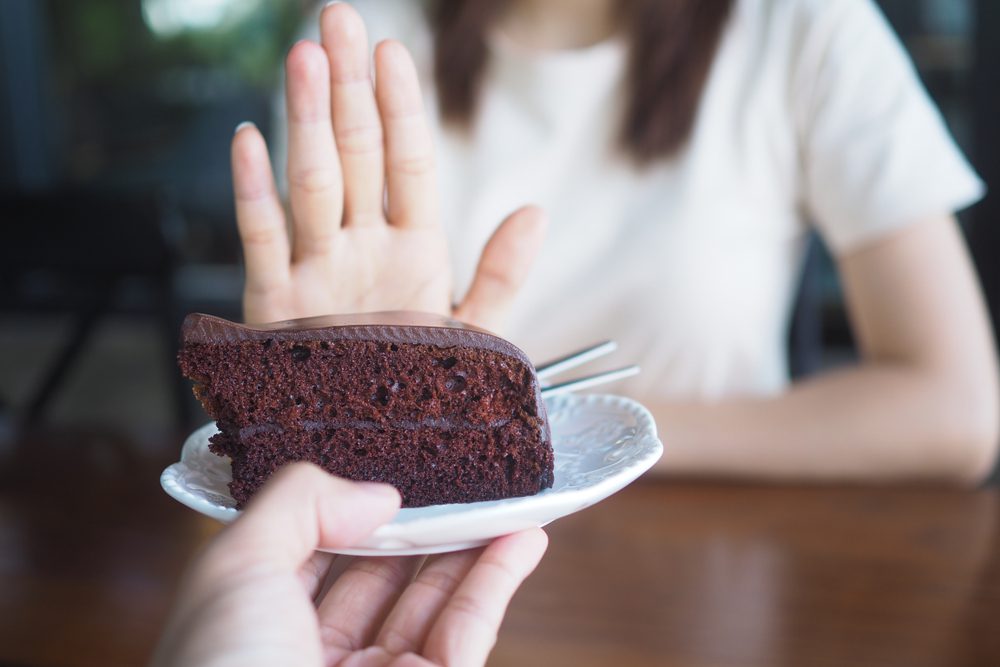
1. Don’t eat before
Usually, when testing your blood, your doctor will require you to fast a few hours before, typically between 8 and 12 hours. Food may interfere with the outcome of certain types of investigations called ”fasting blood tests”.
For example, testing for glucose and cholesterol requires fasting, because they are closely linked to food and the results will be severely altered.
But make sure you check with your doctor to see if this fasting is necessary or not. At the end of the day, nobody wants to starve for nothing, right?
2. Drink water
Are you allowed to drink water before a blood test? The answer is YES, but many people assume that it affects the results of the investigation. These tests are unaffected by having a little greater or lower quantity of water in your system. You can consume either tap or bottled water, but avoid fizzy beverages.
In fact, for anyone who dislikes this procedure, drinking more water than normal is critical.
Why? Dizziness and fainting are caused by low blood pressure, which is a side consequence of dehydration. Staying hydrated will help if you’re prone to fainting when you see blood or needles.
A great way to make sure you are staying on top of your hydration levels is to carry around a reusable water bottle! A good one should be insulating, BPA-free, and leak-free, like this one you can find on Amazon!






17 Responses
Excellent article!
As we age (and for some younger folks, as well), drinking plenty of water the day before the blood test helps the phlebotomist to find and puncture the selected vein, in addition to helping the patient who’s prone to fainting or dizziness.
Can’t get to f*ckin article w/o being redirected to some crappy ad/scam
very informative article
Great explination of the procedure. It was perfect and the exact way it should be done.
Previous experience working in a lab.
The ad blocked the article I was trying to read and could not be removed VERY ANNOYING
Good article. Attention, the name for the rubber band used in the blood draw is a tourniquet.
The term “tourniquet” can be fear inducing and probably applies to any of several items which can stop circulation when tightened. I think the article’s writer showed good judgement is choosing the colloquial term “rubber band”.
(1) Two glasses of water will “pump-up” your veins, so that the blood draw is easier for the tech.
(2) Press the cotton pad they put on the opening firmly. It will immediately close the vein and clot any blood, minimizing the bruise/discoloration.
Stop. I tried to read this article but Instead had to go through several useless downloads
I wish they would stop all the unnecessary ads and distractions.
I found it interesting to see these steps now I can be aware of how it is done
I suppose I could have reviewed the article pre-publishing. The article is very good BUT nothing new for me.
Thanks for posting this!
I was in the medical field for 20 yrs before I became disabled so much of what I read I already knew. What I didn’t know was what certain meds could affect my blood tests. This was great information for my next blood test!
I got a flu shot one hour before my physical and I did not tell the doctor. My blood pressure was way different than normal and the doctor give me an EKG and said it did not look right. I have taken my blood pressure several times since then and it has been normal every time. Is it possible that the shot screwed up things for a couple of hours? Larry Clark
Great article. It covers everything.
Your information is too much and not in order or sequence. I try to read some article and your ad is showing many articles at the same time. This is making me to be lose and my interest reduce because I do not know where to find what I supposed to read.